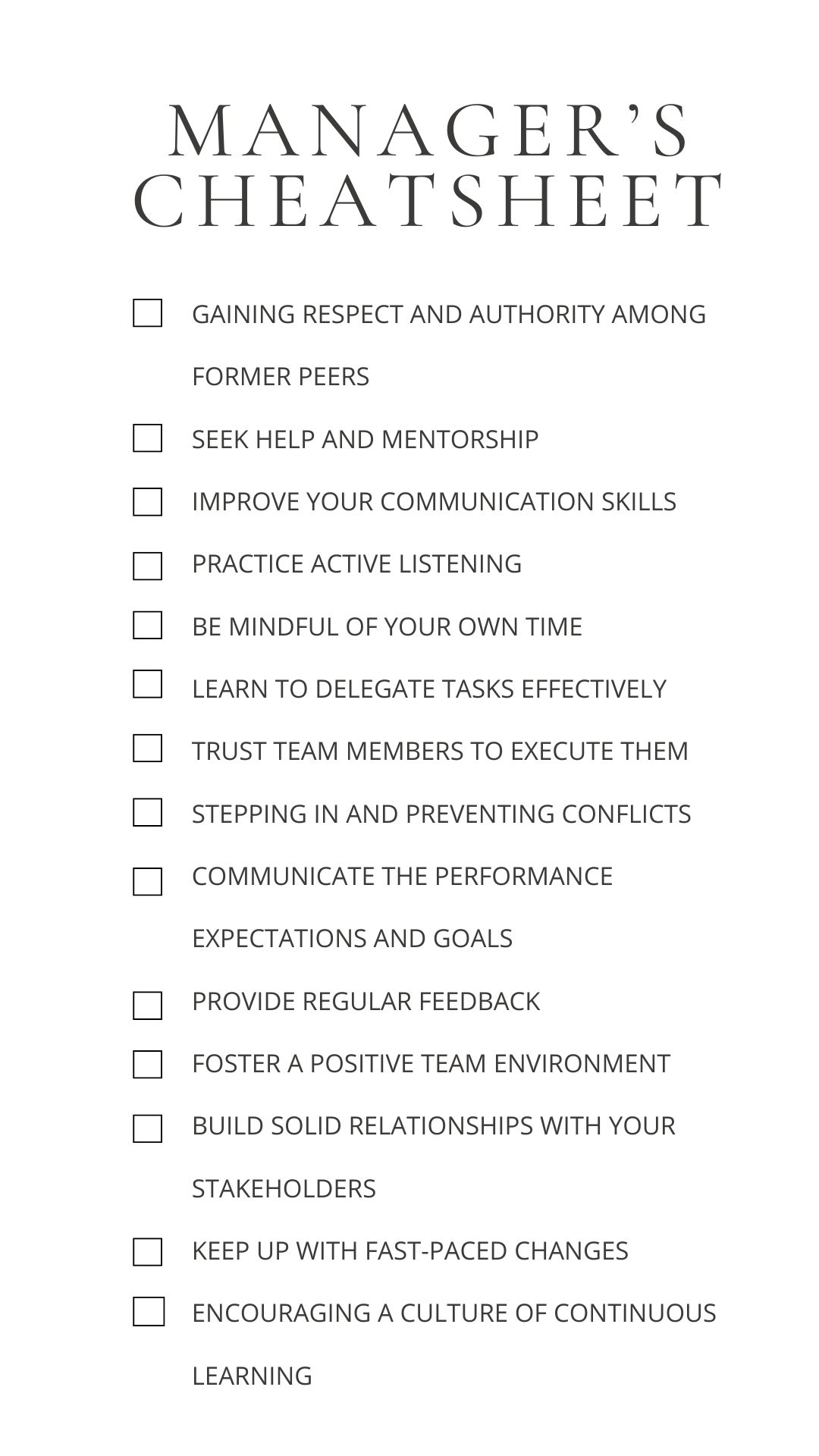Are you a junior manager? Here's my cheat sheet to help you navigate the role's challenges


Moving from being an individual contributor to a management role can feel like a giant leap. It's like realizing you need a whole new set of skills, and balancing your technical and managerial duties adds even more complexity.
When I stepped from a software tester to a management position, I felt like I was fighting a battle inside. Part of me wanted to continue to contribute as a software tester, and the other part struggled to find out what was required for this new role that was showing up to me.
Advancing to a management position brought me joy—the joy that comes with new and exciting challenges. However, it also got me a lot of anxiety. I was afraid that I wasn't keeping up with my new responsibilities, that I was struggling to see the bigger picture, and that I might let down my team.
Along the way, I learned a few things junior managers can do to make their lives easier, and here's what I found out.
Gaining respect and authority among former peers is essential
when transitioning from peer to manager, but it can be challenging.
First, you can seek help and mentorship from the more senior managers. Don't be afraid to ask for help; it's not a sign of weakness.
Improve your communication skills
Effective communication is vital in your new role. Ensure you communicate clearly and effectively with technical and non-technical stakeholders.
Practice active listening. Focus more on listening to what your team members say to you rather than being focused only on replying to their messages.
Be mindful of your own time
Learn how to do effective time management. Learn to delegate tasks effectively and trust team members to execute them.
Be efficient in doing conflict management
Your team could use your help stepping in and preventing conflicts from getting out of hand. Regularly engage with team members to understand their needs and concerns.
Managing team's and team members' performance
It is vital to correctly and clearly set and communicate the performance expectations and goals. Make it a second nature for you to provide regular feedback to team members.
Building relationships
As a manager, you must foster a positive team environment and encourage open communication within the team. Here's where you can act and lead by example by offering your team clear and transparent communication.
In addition to your team, building solid relationships with your stakeholders and the other decision-makers who can impact your team's work is essential.
Adapt to rapid changes
Change requests will constantly occur, and your team will be impacted by external factors. As a manager, it is important to keep up with fast-paced changes by understanding their sources and priorities before having your team implement them.
Also, keep yourself adaptable and responsive to changing project requirements and priorities.
Continuous learning
Stay updated with industry trends and technologies and participate in leadership training and workshops when possible. In addition to keeping yourself up to date, work on encouraging a culture of continuous learning and improvement within the team.
Hope all this helps!

